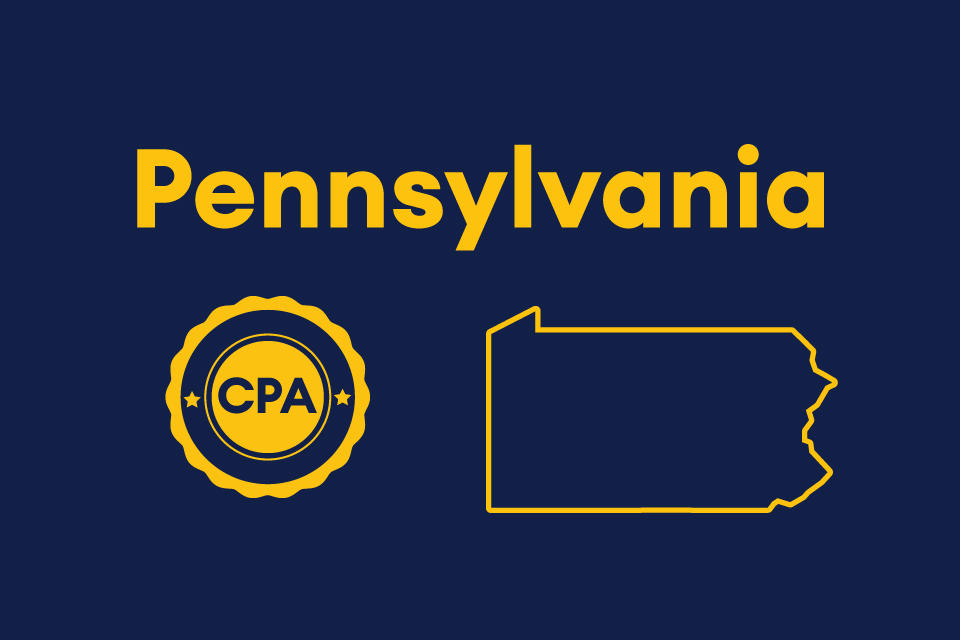Pennsylvania CPA requirements
If you’re ready to take the next step in your accounting career and obtain your CPA license, we’ve outlined the Pennsylvania CPA requirements below. Knowing the education and experience you need prior to moving forward will help you create a more efficient, achievable plan for obtaining your license. However, we also recommend checking with the Pennsylvania Board of Accountancy for any changes or updates they may release.
Pennsylvania CPA license requirements
All CPA candidates must pass the CPA Exam – a four section exam consisting of three Core exams and a Discipline of your choosing. To sit for the exam, you do not need to have your degree, but you must have completed 120 semester hours (180 quarter hours) from a college or university accredited by an agency recognized by the U.S. Department of Education. Of the 120 semester hours (180 quarter hours), 24 semester hours (36 quarter hours) must be in accounting, auditing, business law, finance, technology, or tax subjects approved by the Board.
CPA requirements in Pennsylvania
In addition to passing the CPA Exam, CPA candidates will need to meet additional educational and experience requirements.
Education requirements
Starting June 30, 2025, Pennsylvania opened alternate pathways in addition to the 150 credit hour requirement to apply for CPA licensure. Candidates must now complete one of three education options, which then determines the amount of professional experience required:
- Master's degree in accounting or taxation
- Bachelor's degree in accounting
- Bachelor's degree in accounting and 30 additional credit hours (150 total hours)
Experience requirements
According to Pennsylvania's newest regulations, candidates must complete one to two years of professional experience performing one or more accounting services within a public accounting firm, government agency, business, or academia. All experience must be verified by an active licensed CPA.
- Candidates with a bachelor's degree in accounting must complete two years of experience.
- Candidates with a bachelor's degree in accounting and 150 total credit hours must complete one year of experience.
- Candidates with a master's degree in accounting or taxation must complete one year of experience.
Ethics requirements
CPA candidates in Pennsylvania are not required to take an ethics exam to obtain a CPA license.
Residency requirements
Pennsylvania does not require state residency nor U.S. citizenship, but you must have a Social Security number or complete a form to waive the Social Security Number requirement.
Pennsylvania CPA license renewals
Pennsylvania CPAs must renew their license every two years. The cycle runs from January 1 to December 31 biennially.


